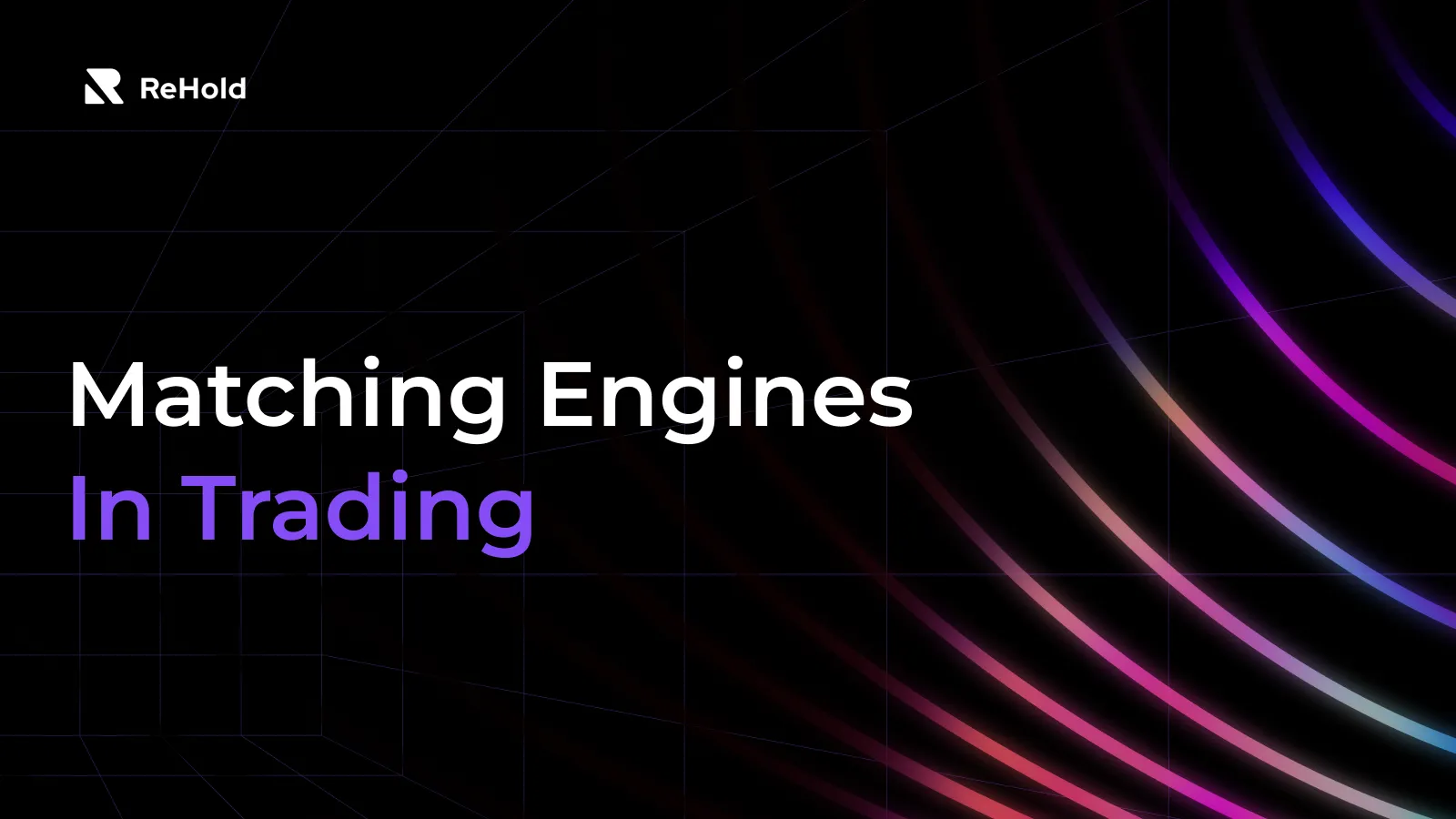- 博客
- > Understanding Matching Engines In Trading
Trading stocks and other digital assets used to be handled and coordinated by humans. Transactions took a longer time, and the processes involved were not only time-consuming but largely inconvenient. This has now changed, as one can easily buy or sell stocks and cryptocurrencies with lightning speed from the comfort of one’s home. The technology responsible for this innovation and advancement is referred to as a matching engine. This system automates the process of matching buy and sell orders in the market, ensuring efficiency and speed. In this article, you will learn about the matching engine; what it is, why it is important, and how it works.

What is a Matching Engine in Trading?
A matching engine is software that exchanges and crypto marketplaces use to pair buyers and sellers and execute their trading orders timely and efficiently. With matching engines, orders are executed efficiently and with minimal human error.
Why are Matching Engines Important in Trading?
Matching engines are important for three major reasons:
To Ensure Speed, Efficiency, And Effectiveness: Traditional matching is hugely plagued by human errors. It's not only inefficient but also time-consuming and ineffective. Matching engines analyze orders and match them within milliseconds, ensuring compatibility.
To Ensure Fairness And Transparency: Traditional matching often lacks fairness and transparency. Matching engines operate with pre-programmed algorithms, eliminating partiality and ensuring a level playing field for all traders.
To Handle Large Volumes of Trade: With the growing popularity of cryptocurrencies, more people are trading and investing in them. Many crypto exchanges now boast millions of users. Matching engines are essential for managing these increasing transaction volumes efficiently.
How Do They Work?
Matching engines are the core technology in digital marketplaces, connecting buyers and sellers with compatible orders. They support various order types like limit and market orders, categorized by timing, price, and purpose. Once an order is placed, it's recorded in a digital order book, and the engine uses algorithms to match compatible buy and sell orders.
For instance, if a buyer wants to purchase Bitcoin worth $10,000, the engine finds a seller willing to sell Bitcoin at this value. This ensures compatibility and successful transaction execution. Matching engines operate on predefined rules and algorithms. These include:
First in First Out (FIFO): This approach prioritizes the oldest orders in the order book.
Pro-Rata: In this approach, orders are proportionally matched based on their size at each price level.
Time-Weighted Average Price (TWAP): Useful for large orders, this algorithm breaks down a large order and executes it over time to reduce market impact.
Types of Matching Engines
Matching engines are classified as either centralized or decentralized.
Centralized Matching Engine: Centralized matching engines are operated from a central server, typically controlled by a single entity or organization. Known for their high service delivery, efficiency, speed, and ability to handle large volumes of traffic, they are the preferred choice for many exchanges. However, due to their centralized nature, they are vulnerable to security breaches and less resilient to attacks.
Decentralized Matching Engine: Decentralized matching engines, as suggested by their name, do not rely on a central server. They operate on a peer-to-peer network using distributed ledger technology, allowing users to maintain control over their assets. While not as fast as centralized engines due to the consensus mechanisms required for transaction validation, they offer enhanced security and are more resilient against attacks, making them a safer option when considering factors like security breaches. Decentralized exchanges uses this type of matching engine.
What Makes a Matching Engine the Best Choice for You?
The ideal matching engine for you depends on your values and trading priorities. If speed, efficiency, and effectiveness are crucial for you, particularly in high-frequency trading or volatile markets, centralized matching engines are likely your best option due to their rapid order execution. On the other hand, if you prioritize security and resilience over speed, decentralized matching engines might be more suitable, as they offer enhanced security by operating on a distributed peer-to-peer network, reducing the risk of centralized attacks. Consider these three factors when choosing a trading platform:
Speed: In crypto trading, where market conditions can change rapidly, the ability of matching engines to execute trades swiftly and efficiently is vital to avoid potential losses.
Security: Given the rise in cyber attacks, the security of the matching engine is paramount. Centralized engines, while faster, may be more vulnerable to attacks than decentralized ones, which offer a more secure, albeit slower, trading environment.
Fees: The cost implications of using a particular type of matching engine should also be considered. Centralized engines might incur higher maintenance costs, potentially leading to higher fees for traders. In contrast, decentralized engines might have lower infrastructure costs, but users should be aware of network fees and other related costs in decentralized trading environments.
Conclusion
Matching engines have fundamentally transformed the way we buy and sell cryptocurrencies, greatly simplifying the process of crypto trading and making it more accessible. However, one of the challenges associated with using matching engines, particularly centralized ones, is the high cost of maintenance. Consistent and effective maintenance is crucial for ensuring quality service delivery and the smooth operation of trading activities. Neglecting maintenance can lead to several issues, such as system overload, delays or cancellations in trade executions, and an increased risk of security breaches. It's important to recognize that while these risks are present, well-maintained matching engines, whether centralized or decentralized, can significantly reduce these vulnerabilities and provide a reliable trading experience.
Boost Your Crypto
It takes seconds to create your first Dual Investment
启动应用